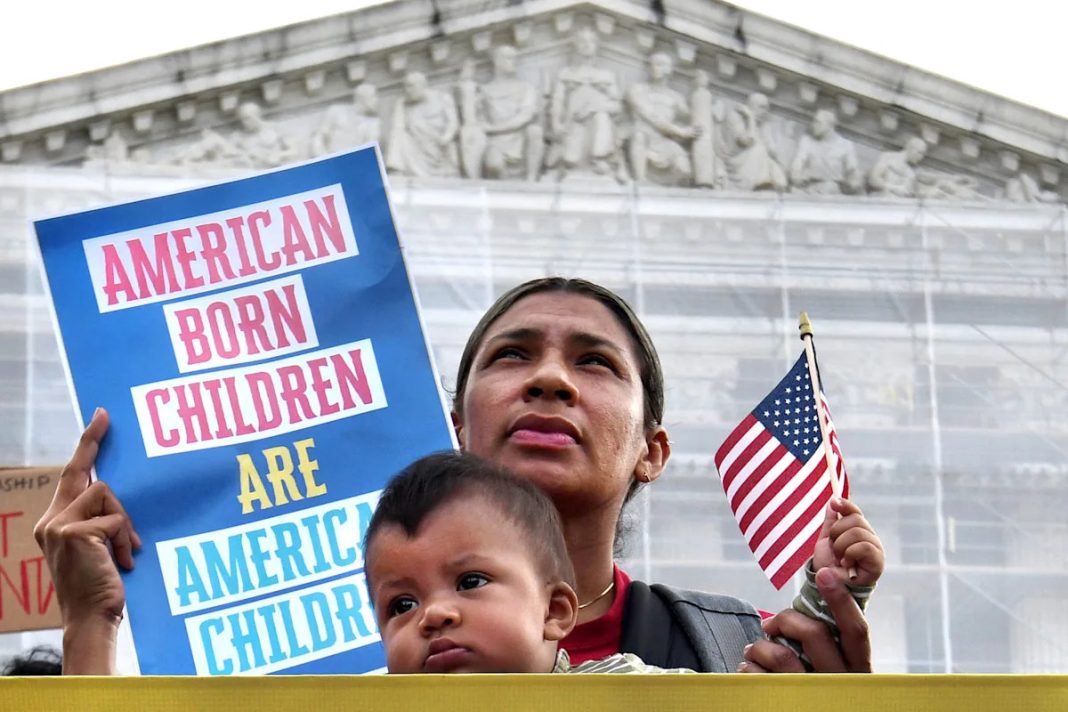The Trump administration has urged the Supreme Court to rule quickly on several of its policy priorities in President Donald Trump’s second term — and it has been fairly successful in doing so. Yet, when it comes to Trump’s birthright citizenship order, the administration has taken a more leisurely approach that suggests a lack of confidence in what even this Supreme Court would say if pressed to rule on the order’s legality.
But now the administration has finally asked the high court to weigh in on the merits of Trump’s order, which effectively aimed to unilaterally rewrite the Constitution, law and precedent — or at the very least, the long-held understanding of those things.
With this new appeal, the justices could choose to add the fate of birthright citizenship to their docket for the new term that starts next week, with a decision due by the summer. We should learn later this year whether they will do so.
The Supreme Court recently ruled in a birthright citizenship case but not on birthright citizenship. When it pressed that appeal, the administration urged the justices not to rule on the merits of whether Trump’s proposed citizenship restrictions were lawful; rather, it asked them only to impose stricter conditions on lower court judges issuing broad injunctions when blocking government policies. It’s an important procedural issue that applies in all sorts of litigation but it arose in the context of the birthright citizenship litigation, too.
The high court majority issued the procedural ruling the administration wanted in June. But that still left open the underlying question of the order’s legality. After losing the latest round of litigation again in the lower courts, the administration has now returned to the justices, asking them to “confirm the original meaning of the Citizenship Clause.” That clause of the 14th Amendment, which has long been understood to grant automatic citizenship to people born on U.S. soil, says: “All persons born or naturalized in the United States, and subject to the jurisdiction thereof, are citizens of the United States and of the State wherein they reside.”
Again, the administration could have asked for such a ruling months ago, instead of first seeking the procedural ruling it pressed in Trump v. CASA. The administration has not been shy about ringing up the justices when it has felt the need to do so. In any event, we are now closer to the justices finally deciding the matter. The plaintiffs, who’ve been winning in the lower courts, will have a chance to weigh in before the justices consider whether and when to take it up.
Subscribe to the Deadline: Legal Newsletter for expert analysis on the top legal stories of the week, including updates from the Supreme Court and developments in the Trump administration’s legal cases.
This article was originally published on MSNBC.com

